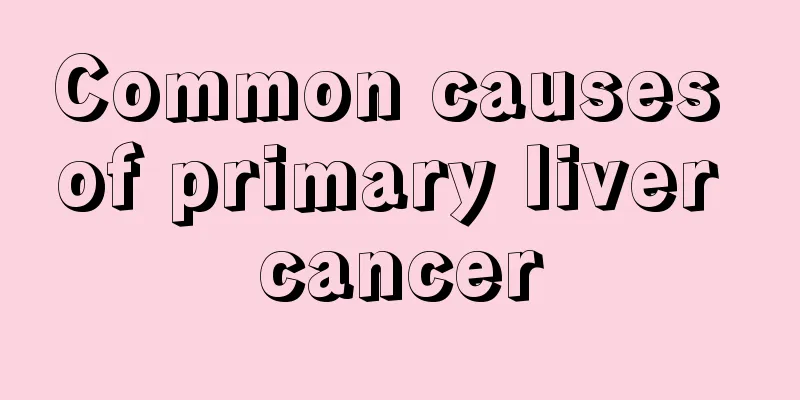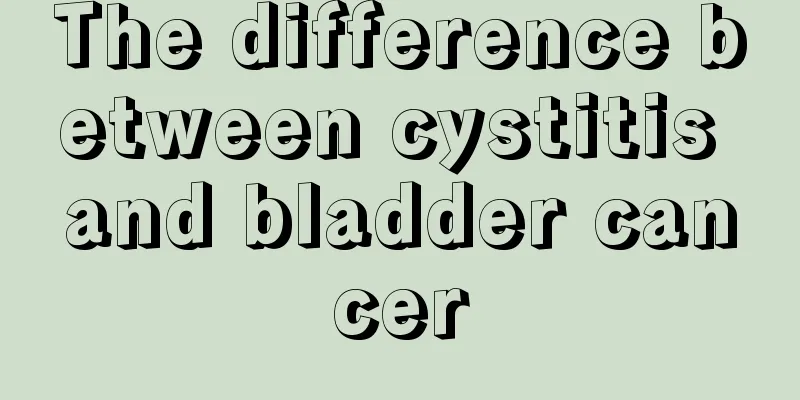Common causes of primary liver cancer

|
The cause of primary liver cancer has not yet been determined. It is generally believed to be related to the combined effects of multiple factors. 1. Viral hepatitis and cirrhosis Through the study of the relationship between hepatitis B virus and liver cancer, it was found that: ① more than 90% of liver cancer patients had positive hepatitis B markers in their serum (only about 15% in the control group); ② HBsAg-positive people in high-incidence areas of liver cancer have a 6-50 times higher chance of developing liver cancer than those with negative results; ③ molecular biological studies have shown that simple integrated HBV-DNA accounts for 151.5% of liver cancer patients in my country; ④ HBV's X gene can change the gene expression of HBV-infected liver cells, which may be related to carcinogenesis. The above shows that hepatitis B virus is closely related to liver cancer and is an important risk factor for liver cancer. In recent years, the relationship between hepatitis C and liver cancer has attracted attention. Data from my country show that 5%-8% of patients with hepatocellular carcinoma are anti-HCV positive, while the control group is 0%-2%. In liver cancer cases, there are many patients with anti-HCV and HBV co-infection. The relationship between HCV and liver cancer is extremely important in Japan, but it remains to be confirmed in China. (ii) Aflatoxin Surveys in areas with a high incidence of liver cancer, especially in the southern regions where corn is the main staple food, show that the prevalence of liver cancer may be related to the contamination of grain by aflatoxin Bi, and that the level of aflatoxin Mi, a metabolite of aflatoxin Bi, in human urine is very high. Aflatoxin Bi is the strongest carcinogen for animal liver cancer, but there is no direct evidence of its relationship with human liver cancer. 3. Drinking water pollution In Qidong, Jiangsu, the incidence of liver cancer among people who drink ditch water is (60-101)/1.1 million, and that among those who drink well water is (0-19)/100,000. The relative risk of people who drink ditch water is 3.00. The investigation found that there is a kind of blue-green algae in ditch water that produces algae toxins, which may contaminate drinking water and cause liver cancer. 4. Genetic factors In high-incidence areas, liver cancer sometimes clusters in families, especially among people who live together and have blood ties. This may be related to vertical transmission of the hepatitis virus, but this remains to be confirmed. (V) Others Other suspected carcinogens or carcinogenic factors that may cause liver cancer include: 1. Ethanol poisoning. 2. Nitrosamines. 3. Pesticides such as organochlorine, etc. 4. Trace elements: In areas where liver cancer is prevalent, water, soil, food, human hair and blood contain high levels of copper and zinc, and low levels of molybdenum. 5. Clonorchis sinensis, which can stimulate the proliferation of bile duct epithelium and produce cholangiocarcinoma. 6. Trace elements, sex hormones, radioactive substances, parasites, alcoholism, smoking, genetic factors, etc. |
<<: Commonly used prescriptions for esophageal cancer
>>: Dissemination and metastasis of renal cancer
Recommend
What to do if nasopharyngeal carcinoma metastasizes to the liver in the late stage and how to care for it
In the advanced stage of nasopharyngeal cancer, t...
Common diseases and prevention in summer
tomato. In recent years, the Western beauty indus...
How to care for hamartoma in daily life
The disease can be mild or severe. In severe case...
Symptoms of pufferfish poisoning: hallucinations
For those who like to eat puffer fish, they must ...
What causes breast cancer
The cause of breast cancer is still unclear. Rese...
What does unilateral total resection of thyroid cancer mean?
Unilateral thyroidectomy usually refers to thyroi...
How to prevent prostate cancer
Prostate cancer is a common disease, and many mal...
Diagnosis of advanced melanoma
Melanoma, also known as malignant melanoma, is a ...
The process of laparoscopic surgery for cystic cyst
Chocola cyst is a relatively common cyst, and mos...
Does Tianguo have any side effects on the kidneys?
The kidney is a very important organ in the human...
What are the consequences of repeatedly picking at scalp wound scabs?
In life, it is easy to get wounds on the body due...
Why do I urinate less and yellower in summer?
Some people like summer because they can wear coo...
The recovery of gastric cancer patients requires dietary adjustment
The incidence of gastric cancer in my country is ...
8 tips to keep warm in winter
As the temperature drops, the human body's re...
Immune balance therapy
Immune balance therapy is a widely used treatment...









